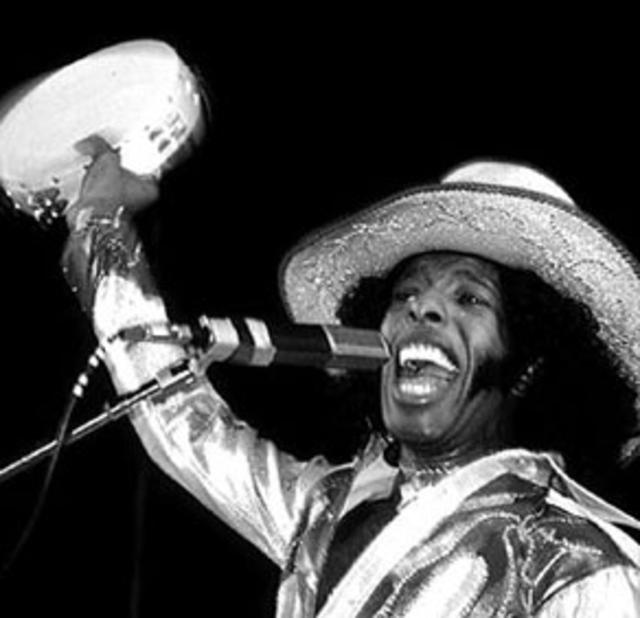Sly and the Family Stone

Sly and the Family Stone took the Sixties ideal of a generation coming together and turned it into deeply groove-driven music. Rock's first integrated, multi-gender band became funky Pied Pipers to the Woodstock Generation, synthesizing rock, soul, R&B, funk and psychedelia into danceable, message-laden, high-energy music. In promoting their gospel of tolerance and celebration of differences, Sly and the Family Stone brought disparate audiences together during the latter half of the Sixties. The group's greatest triumph came at the Woodstock Festival in August 1969. During their unforgettable nighttime set, leader Sly Stone initiated a fevered call-and-response with the audience of 400,000+ during an electrifying version of "I Want to Take You Higher."Sly Stone (born Sylvester Stewart) has been called a "great communicator" for his infectious mixture of message and music. Born in Dallas, he moved with his family to Vallejo, California, where he sang in a family gospel group as a child and later studied music theory and composition at the local junior college. He established himself in the San Francisco area as a disk jockey and a producer of such records as the Beau Brummels' "Laugh Laugh" for Autumn Records. Sly and the Family Stone came together late in 1966, with keyboardist/vocalist Stone recruiting family members: his sister Rose (keyboards, vocals), brother Freddie Stone (guitar) and cousin Larry Graham (bass). The group was rounded out by Cynthia Robinson (trumpet), Greg Errico (drums) and Jerry Martini (sax). Their first single appeared on a local label in 1967, while their debut album, A Whole New Thing, was released nationally on Epic in 1967.The group connected with the rising counterculture by means of songs that addressed issues of personal pride and liberation in the context of driving, insistent and sunny-tempered music that fused rock and soul, creating a template for Seventies funk. As proof that they were reaching a rainbow coalition among the young, Sly and the Family Stone dominated the late Sixties charts with such essential singles as "Dance to the Music" (#8 pop, #9 R&B), "Everyday People" (#1, pop and R&B), "Hot Fun in the Summertime" (#2 pop, #3 R&B) and "Thank You Falettinme Be Mice Elf Agin" (#1, pop and R&B). Despite these heady peaks, the band's fortunes began declining in tandem with Sly Stone's mounting substance-abuse problems. A brilliant artist even under duress, Stone was largely responsible for the bleak, cryptic but undeniably powerful There's a Riot Goin' On (1971), which captured the souring mood of the country no less than the sound of his own ship going down. During this period, Sly and the Family Stone became notorious for missing concert dates, though they still enjoyed commercial success with singles such as "Family Affair" (#1, pop and R&B).A realignment in group members occurred in 1972, and Stone led the band through a couple more albums - Fresh (1973) and Small Talk (1974) - that showed flashes of the old fire. After that, however, the releases became increasingly sporadic and Stone himself appeared to drop from sight. A flurry of activity in the early Eighties found him touring on his own and with George Clinton's P-Funk All-Stars, and an album of new material, Ain't But the One Way, appeared in 1983. Aside from two well-publicized drug busts, the ensuing years have largely been quiet ones for the man who once shook the world with the exhortation "I wanna take you higher!"In 2011, Sly did return with a new album, I'm Back! Family and Friends. It featured new recordings of his greatest hits, with guest appearances by Jeff Beck, Ray Manzarek, Johnny Winter, Bootsy Collins and others. The album also included three previously unreleased songs. However, that same year, it was reported that Sly was homeless and was living in a white camper-van in Los Angeles.